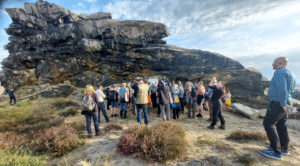INQUA 2002 my: Submerged Palaeolandscapes of the Southern Hemisphere (SPLOSH)
SPLOSH project is focused on raising awareness and developing networks from the fields of humanities and science working on submerged palaeolandscapes of the Southern Hemisphere.
Abstract

The nature and human occupation of submerged coastal landscapes have rapidly emerged as a key topic in Quaternary science in the last decade, aided by new and higher-resolution technologies and focused research programs. These have been relatively well documented in the Northern Hemisphere, and are beginning to be translated into the Southern Hemisphere where the study of submerged palaeolandscapes faces specific challenges and unique opportunities.
Global changes in relative sea level of up to 120 or 130 m below present during the Last Glacial Maximum (~ 22,000 years before present) had a profound influence on the movement of people, including between Island South Asia and Australia, as well as within the South American and South African landmasses. Vast coastal plains and a significant portion of archaeological evidence were drowned during the marine transgression, with estimates of up to 40% decrease in continental landmass (~ 190 sq. km/yr) within the Pacific and Indian Oceans. Importantly, there is increasing scientific evidence that traces of this unique record have been preserved on Southern Hemisphere continental shelves, alongside growing awareness of cultural continuity with this Sea Country through oral history.
We focus on common themes such as sea-level change, coastal landform evolution, human dispersals, and coastal resource use, with a particular emphasis on Indigenous perspectives and connections with Sea Country. These themes aim to improve science, knowledge, and resource management of a shared heritage.
Funded by INQUA for 2020 – 2023, the SPLOSH focus group aims to increase awareness of submerged landscapes and environmental changes in the Southern Hemisphere and provide a platform for scientific exchange and interdisciplinary collaboration to strengthen the importance of research in this region.
Objectives:
- How does the greater oceanic area of the Southern Hemisphere influence the nature and preservation of submerged landscapes, and how these are studied?
- How can we incorporate concerns, interests, knowledge, traditions, and perspectives of First Nations people in submerged landscapes research?
- How do different biogeographical perspectives from the SH influence our understanding of human migration and past coastal resource use?
- What new challenges and opportunities can arise from SPLOSH.
Project leaders
- Ingrid Ward, University of Western Australia, Perth
- Helen Farr, School of Humanities, Southampton University, UK
- Fraser Sturt, School of Humanities, Southampton University, UK
- Andrew Green, Marine Geology and Sedimentology, Uni. KwaZulu-Natal, South Africa
- Hayley Cawthra, Marine Geoscience, Council for Geoscience, Cape Town, South Africa
- Alex Bastos, Dept. Oceanography and Ecology, Universidade Federal do Espírito Santo, South America
- Diego Carabias, ARQMAR – Centre for Maritime Archaeology Research of Southeastern Pacific, South America





